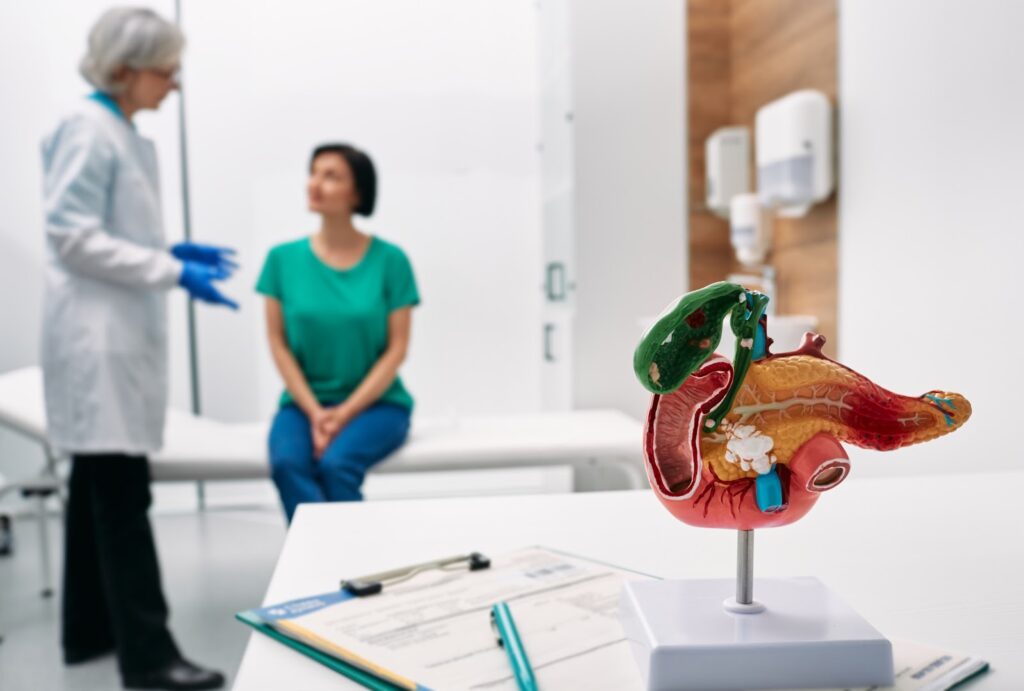How to Prepare for Esophageal Manometry in NJ
Esophageal manometry measures the pressures and the pattern of muscle contractions in your esophagus. This test is performed to determine if your esophagus can move food to your stomach normally. Esophageal manometry is valuable in the diagnosis of conditions that can cause a wide variety of uncomfortable symptoms, which may include pain, heartburn, and difficulty swallowing. If your physician at DHC determines that this procedure is right for you, there are certain steps you will need to take to ensure that accurate results can be achieved and the proper diagnosis can be made.
Before Your Esophageal Manometry
It is important to follow the steps given to you by your physician to ensure the success of your esophageal manometry. If you have any questions about the procedure or how to prepare, please let us know! Before your appointment, please be sure to tell your physician about all medications you are currently taking and any allergies you may have to medications, latex, etc. You will be told if there are any medications you should stop taking before the procedure. These may include proton pump inhibitors, H2 blockers, antacids, calcium channel blockers, nitrate medications, or beta-blockers. If you have diabetes, please consult with your physician for adjustments to your medication dosage before your procedure. You should also not have anything to eat or drink after midnight the evening before your procedure.
If you have any of the following, please inform the office:
- If you are not able to tolerate nasal intubation.
- If you have any significant bleeding disorders for whom nasal intubation is contraindicated.
- If you have a known esophageal obstruction preventing passage of the catheter.
The Day of Your Scheduled Esophageal Manometry
You should not have anything to eat or drink eight hours prior to your scheduled appointment time. You may brush your teeth and use mouthwash the morning of your procedure, but do not swallow any water. Necessary medications are allowed with a sip of water 2 hours prior to your test. However, the day of the test, you should avoid pain medications, sedatives, tranquilizers, antispasmodics, and pro-mobility medications. You can drive yourself to the test. The procedure is performed without anesthesia, and a numbing cream will be applied to make you feel more comfortable during the test. Our physicians will ensure that you understand all steps of the process and what will happen during your appointment. An esophageal manometry usually lasts around 30 minutes.
After Your Esophageal Manometry
Your doctor will discuss the results of your esophageal manometry with you and let you know if any follow-up testing is needed. Anesthesia is not administered for this procedure, so patients can drive themselves home without assistance. You can return to your normal activities and diet right away. You may feel soreness in your throat for a short time after the procedure. Throat lozenges or gargling with salt water may help. If you experience any concerning symptoms following your appointment, please contact our office.
Recent Blogs
Learn more about all things digestive health and wellness by checking out our recent gastroenterology blogs.

Diverticular disease and diverticulitis are related digestive health conditions that affect the large intestine (colon). With diverticular disease, small, bulging pockets develop on the lining of the colon. When these pockets become inflamed or infected, the condition is called diverticulitis. They are very common – especially after age 40 – and rarely cause problems. At […]

Many Americans like to set New Year’s resolutions to make positive lifestyle changes such as improving their diet and going to the gym. However, March is also a great time for a healthy focus, especially as the long winter season comes to an end. National Nutrition Month, sponsored by the Academy of Nutrition and Dietetics, […]

Gallstones form when bile stored in the gallbladder hardens. Your gallbladder is a small, pear-shaped organ on the right side of your abdomen, just beneath your liver. It holds a digestive fluid called bile that’s released into your small intestine. Gallstones are pebble-like pieces of concentrated bile material, typically made up of cholesterol or bilirubin […]
Esophageal Manometry at Digestive Healthcare Center
If your physician at Digestive Healthcare Center determines that an esophageal manometry is needed to determine the cause of uncomfortable symptoms, we will make sure that you fully understand how to prepare for the procedure. To learn more about the tests and procedures we offer or to schedule an appointment at one of our three gastroenterology centers in NJ, please contact us today.


























